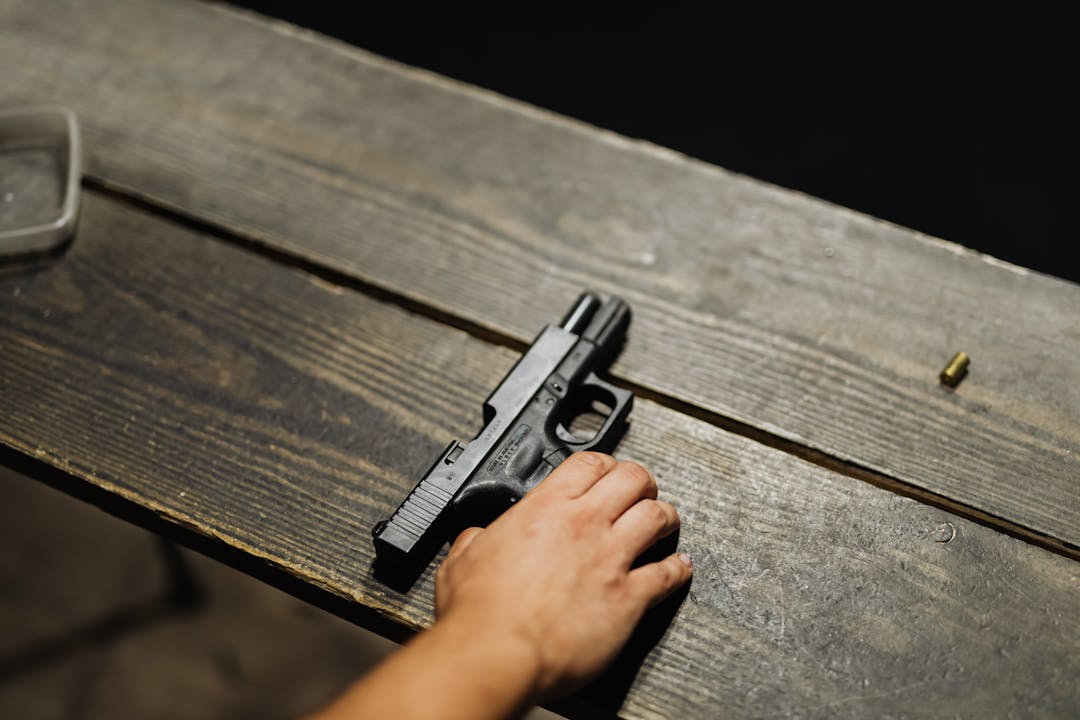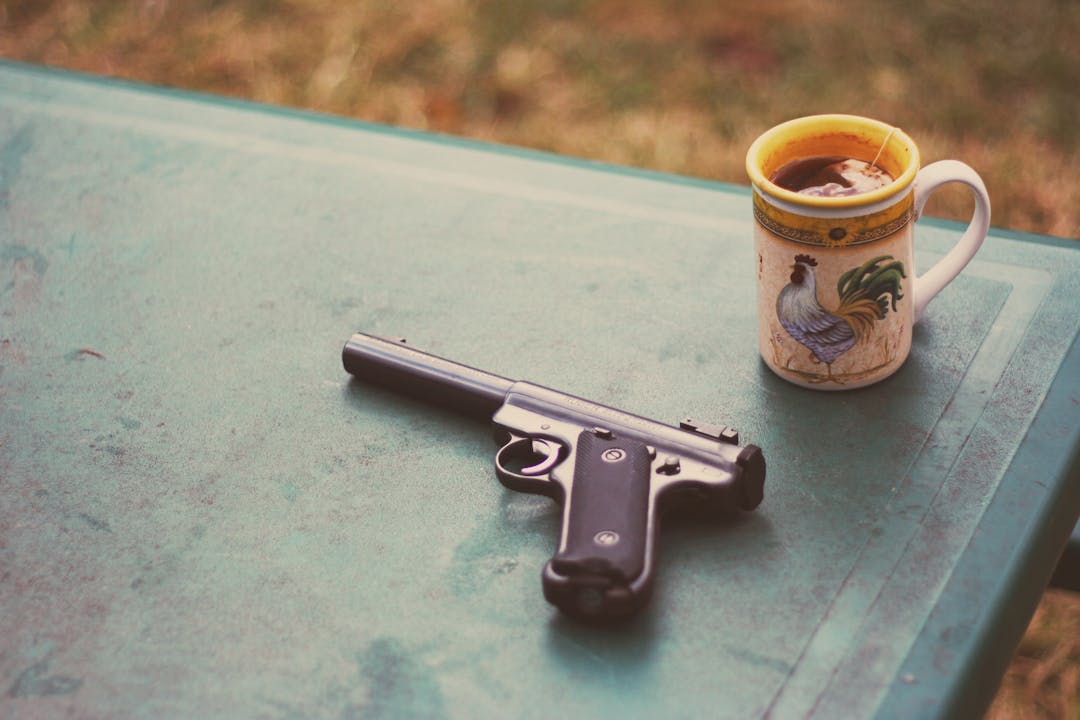Home defense is a top priority for many individuals and families. In order to protect yourself and your loved ones, it is important to have the right tools and knowledge. One of the most crucial tools for home defense is a handgun. A home defense handgun can provide you with the means to defend yourself in case of a home invasion or burglary.
In this article, we will explore the importance of home defense handguns, how to choose the right one for your needs, and the importance of proper training and practice.
Understanding the Importance of Home Defense Handguns
Statistics show that home invasions and burglaries are unfortunately common occurrences. According to the FBI, there were approximately 1.2 million burglaries in the United States in 2019 alone. These incidents can be traumatic and have long-lasting effects on victims. Having a home defense handgun can provide you with a sense of security and peace of mind, knowing that you have a means to protect yourself and your family. Check details here: DB Firearms.
A home defense handgun plays a crucial role in protecting yourself and your family in case of an intruder. It provides you with a means to defend yourself when other options may not be available or effective. The presence of a firearm can act as a deterrent, potentially preventing an intruder from entering your home in the first place. In the event that an intruder does enter your home, a handgun can be used to neutralize the threat and ensure the safety of yourself and your loved ones.
Identifying Your Personal Needs and Preferences
When choosing a handgun for home defense, it is important to consider your personal needs and preferences. Factors such as size, weight, caliber, ergonomics, grip, trigger, and sight options should all be taken into account. To know it perfectly just click here for more details.
Size and weight are important considerations as they can impact the ease of handling and maneuverability of the handgun. A smaller, lightweight handgun may be easier to handle and carry, but it may also have less stopping power. On the other hand, a larger, heavier handgun may be more difficult to handle, but it may have greater stopping power.
Caliber is another important factor to consider. The caliber of a handgun refers to the size of the bullet it fires. Popular calibers for home defense handguns include 9mm, .40 S&W, and .45 ACP. Each caliber has its own advantages and disadvantages, so it is important to choose one that suits your needs and preferences.
Evaluating Different Types of Handguns
| Type of Handgun | Accuracy | Recoil | Capacity | Price |
| Revolver | Good | Low | 6-8 rounds | Depends |
| Semi-Automatic | Excellent | Medium | 10-20 rounds | Depends |
| Derringer | Poor | High | 2 rounds | Depends |
| Single-Action | Good | Low | 6 rounds | Depends |
| Double-Action | Good | Medium | 6-8 rounds | Depends |
There are several different types of handguns available for home defense, including semi-automatic pistols and revolvers. Semi-automatic pistols are popular choices due to their higher ammunition capacity and ease of reloading. Revolvers, on the other hand, are known for their reliability and simplicity.
Semi-automatic pistols typically have a magazine that holds multiple rounds of ammunition. They can be either single-stack or double-stack, with double-stack magazines holding more rounds. Semi-automatic pistols are often preferred by those who value higher ammunition capacity and faster reloading.
Revolvers, on the other hand, have a cylinder that holds multiple rounds of ammunition. They are known for their reliability and simplicity, as they have fewer moving parts compared to semi-automatic pistols. Revolvers are often preferred by those who value reliability and ease of use.
Choosing the Right Caliber for Your Home Defense Handgun
Choosing the right caliber for your home defense handgun is crucial. The caliber of a handgun determines the size and power of the bullet it fires. Popular calibers for home defense handguns include 9mm, .40 S&W, and .45 ACP.
When choosing a caliber, it is important to consider factors such as stopping power, recoil, and ammunition availability. Stopping power refers to the ability of a bullet to incapacitate an attacker. A larger caliber generally has greater stopping power, but it also tends to have more recoil. Recoil is the backward movement of the handgun when fired, and it can affect accuracy and ease of shooting. Additionally, it is important to consider the availability and cost of ammunition for the chosen caliber.
Considering the Size and Weight of the Handgun

The ergonomics and grip of a handgun are important factors to consider when choosing a home defense handgun. A comfortable and secure grip is crucial for effective use of a handgun.
The ergonomics of a handgun refer to its design and how it fits in your hand. It is important to choose a handgun that feels comfortable in your hand and allows for a natural point of aim. The grip of a handgun refers to the texture and shape of the handle. A grip that provides good traction and fits your hand well can help improve control and accuracy.
When evaluating the ergonomics and grip of a handgun, it is recommended to handle different models and see how they feel in your hand. What works well for one person may not work well for another, so it is important to find a handgun that feels comfortable and secure for you.
Assessing the Trigger and Sight Options
The trigger and sights of a handgun play a crucial role in accurate shooting. A good trigger should have a smooth and consistent pull, with minimal creep and overtravel. The sights should be easy to acquire and allow for quick and accurate target acquisition.
When evaluating the trigger of a handgun, it is important to consider factors such as pull weight, reset, and overall feel. Pull weight refers to the amount of force required to pull the trigger. A lighter pull weight can make it easier to shoot accurately, but it may also increase the risk of accidental discharge. Reset refers to the distance the trigger must travel forward after being released in order to reset for the next shot. A shorter reset can allow for faster follow-up shots.
When evaluating the sights of a handgun, it is important to consider factors such as visibility and ease of use. The sights should be easy to see and align, even in low-light conditions. Additionally, it is important to consider whether the sights are adjustable or fixed.
Testing and Evaluating the Performance of Different Handguns
Before making a purchase, it is important to test and evaluate the performance of different handguns. This can be done by visiting a shooting range or participating in a handgun rental program.
When testing different handguns, it is important to consider factors such as accuracy, recoil, and ease of use. Accuracy refers to how well the handgun shoots and groups shots on target. Recoil refers to the backward movement of the handgun when fired, and it can affect accuracy and ease of shooting. Ease of use refers to how comfortable and intuitive the handgun is to handle and shoot.
It is recommended to shoot multiple rounds through each handgun you are considering in order to get a good sense of its performance. Pay attention to how well you are able to control the handgun, how accurate your shots are, and how comfortable it feels in your hand.
Understanding the Legal Implications of Home Defense Handguns
It is important to understand the legal implications of using a handgun for home defense. Laws regarding the use of firearms can vary by jurisdiction, so it is important to familiarize yourself with the laws in your area.
In general, the use of deadly force is only justified in situations where there is an immediate threat of death or serious bodily harm. It is important to understand the concept of self-defense and when it is legally permissible to use a firearm to protect yourself or others.
Additionally, it is important to understand the laws regarding the storage and transportation of firearms. Proper storage and transportation can help prevent accidents and ensure compliance with the law.
Investing in Proper Training and Practice for Your Home Defense Handgun
Having a home defense handgun is not enough; proper training and practice are essential for effective use. It is important to invest in proper training and practice opportunities in order to develop the necessary skills and confidence.
Training should cover topics such as firearm safety, marksmanship, defensive shooting techniques, and legal considerations. It is recommended to seek out qualified instructors who can provide personalized instruction and guidance.
Practice should be regular and ongoing in order to maintain proficiency. This can be done at a shooting range or through dry-fire practice at home. Dry-fire practice involves practicing firearm manipulation and trigger control without live ammunition.
Choosing the right home defense handgun and investing in proper training and practice are crucial for effective home defense. A home defense handgun can provide you with the means to protect yourself and your family in case of a home invasion or burglary. By considering factors such as size, weight, caliber, ergonomics, grip, trigger, and sight options, you can find a handgun that suits your needs and preferences. Additionally, by investing in proper training and practice, you can develop the necessary skills and confidence to effectively use your home defense handgun.
FAQs
What is a handgun?
A handgun is a firearm designed to be held and operated by one hand. It is commonly used for self-defense, target shooting, and hunting.
Why is it important to choose the right handgun for home defense?
Choosing the right handgun for home defense is important because it can mean the difference between life and death. A handgun that is too small or too large, or one that is difficult to operate, can be ineffective in a self-defense situation.
What factors should be considered when choosing a handgun for home defense?
Factors to consider when choosing a handgun for home defense include size, weight, caliber, capacity, reliability, ease of use, and personal preference.
What is the best caliber for a handgun for home defense?
The best caliber for a handgun for home defense is a matter of personal preference. However, popular calibers for home defense include 9mm, .40 S&W, and .45 ACP.
What is the best type of handgun for home defense?
The best type of handgun for home defense is a matter of personal preference. However, popular types of handguns for home defense include semi-automatic pistols and revolvers.
What is the difference between a semi-automatic pistol and a revolver?
A semi-automatic pistol uses a magazine to hold and feed ammunition into the chamber, while a revolver uses a cylinder to hold and rotate ammunition into the chamber.
What is the best way to store a handgun for home defense?
The best way to store a handgun for home defense is in a secure and easily accessible location, such as a quick-access safe or lockbox. It is important to keep the handgun out of reach of children and unauthorized individuals.





